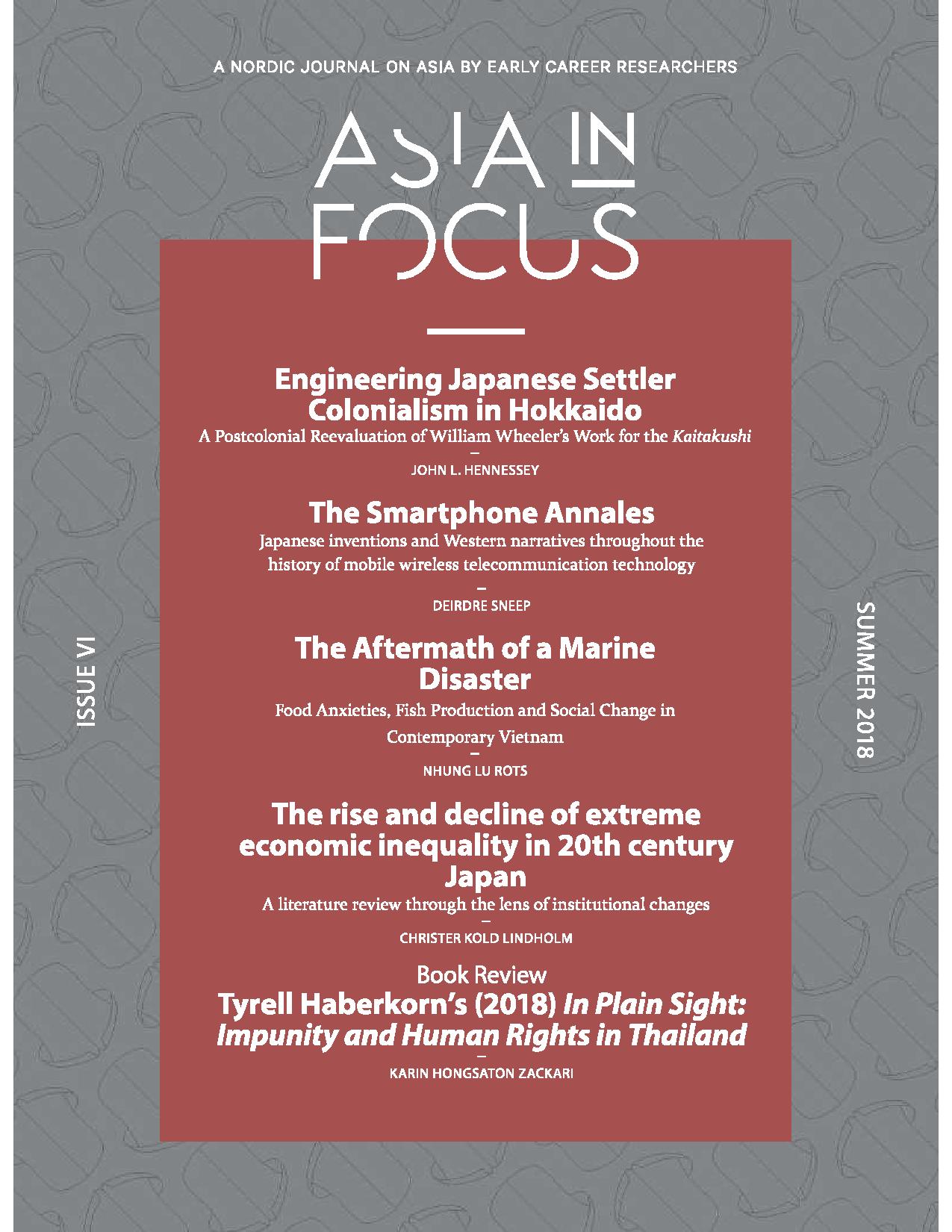The rise and decline of extreme economic inequality in 20th century Japan
A literature review through the lens of institutional changes
Keywords:
economic inequality, Meiji Japan, labour movements, capitalism, globalisationAbstract
As economic inequality is rising in many countries around the world, the interest in how inequality has risen and declined in the past is being revived. Some researchers have seen modern history since the industrial revolution as a positive story of economic growth and technological progress that enhanced social development for all. Others have seen modern political economies as wrought with vicious cycles of inequality and social instability. This study investigates the rapid rise of economic inequality in Japan beginning in the 1880s and its equally dramatic fall in the 1930s. Using the World Income and Wealth Database’s new statistical data, I argue that Japan’s early economic development was characterised by highly inegalitarian institutions: taxation laws transfered resources from agriculture to urban centres for decades, corporate, financial and land properties were heavily concentrated in top income groups and rights-based organisations built by labour and women’s movements took time to gain national influence. The unequal strength of these institutions prevented economic growth from fostering inclusive development. Only with the outbreak of World War II were these institutions reformed during the collapse of the global economic system. This article thereby supports the development literature that draws clear distinctions between unequal growth and socio-economic equality tied to institutional change.
Downloads
Published
How to Cite
Issue
Section
License
Copyright of the authors and NIAS - Nordic Institute of Asian Studies. All rights reserved. No part of this publication may be reproduced without the written permission from the authors.


